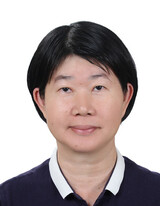Research Focus
Biotechnology and molecular mechanisms of double spikes initiation in Phalaenopsis orchids
The potted and cut-flower Phalaenopsis orchid market is flourishing and it is a growing industry. Usually, consumers prefer to buy orchid pot plant yields many flowers. One strategy to increase more orchid flowers production is via producing double or multiple spikes. Our Lab. has developed a technology by controlling the environment factors (temperature, light, CO2) and significantly increase Phalaenopsis spike numbers, flower numbers, and good quality flowers in Phalaenopsis orchids. We have acquired a Know-how IPR protection on our invention (Academia Sinica Docket number: 14T-1030114) and already technology transferred to private sector. For basic research, we compare the differential display genes in the Know-how based technology, identify potential candidate genes associated with double spiking, and study the underlying molecular and physiological mechanisms regulating double spike initiation in Phalaenopsis orchid.
Study on the key regulatory genes associate with pollen development in rice.
Heterosis can significantly increase crop yield and stable male sterility line plays an important role to produce pure F1 hybrid seed. We isolated a bHLH142 mutant line that completely no pollen development and consequently there is no grain production in the null mutant. Gene and protein of bHLH142 is tissue specifically expressed in the anther and not in other tissues. This nature is desirable from the perspective of GMO food biosafety because anther-specific expression will avoid any unintended expression in other tissues, especially in the edible part of the seed. Knock out mutant downregulated EAT1, inhibited AP37, thus caused failing in tapetal programmed cell death. We demonstrated that bHLH142 interacts with TDR (bHLH5) and co-regulate downstream EAT1 (bHLH141) expression (Ko et al., 2014). In the near future, we hope to do more discoveries useful genes associate with pollen development and disclose the complex regulatory pathway related to pollen development in rice.

Swee-Suak Ko
Senior Research Specialist
Professional and Academic Positions
Associate Research Specialist of Academia Sinica- ABRC, Taiwan
Assistant Research Specialist, July 2009- Feb.20, 2017, ABRC, Taiwan.
Assistant Research Specialist, August 2007 - July 2009. Institute of Plant Molecular Biology (IPMB), Academia Sinica.
Principle Research Assistant, July 1993- Feb. 2003. Bulb Allium Unit, AVRDC
Educational and Professional History
Ph.D., Horticulture, July 2001. National Chung Hsing University, Taiwan
M.S., Horticulture, July 1993. National Chung Hsing University, Taiwan
B.S., Horticulture, July 1991. National Chung Hsing University, Taiwan
Postdoctoral Training:
ABRC, Academia Sinica, March 2003 - April 2005
AS-BCST, May 2005 – July 2007

